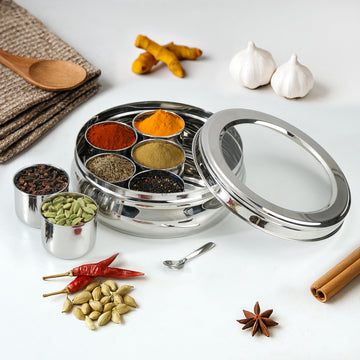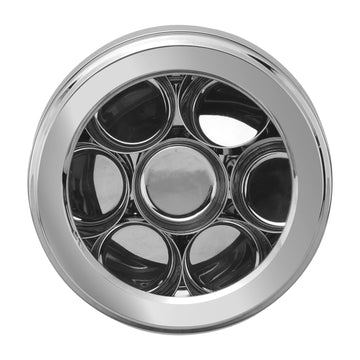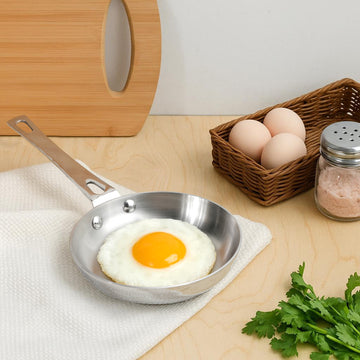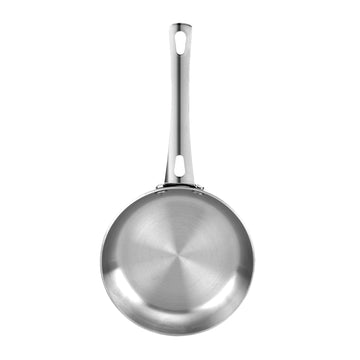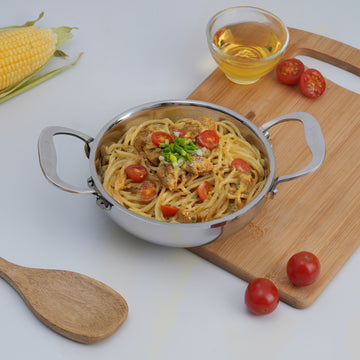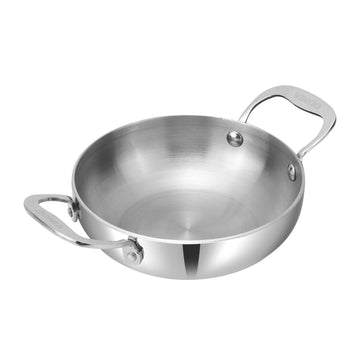5 Ways to Practice Sustainability at Home
 Gone are the days when we were just learning about global warming and greenhouse gases. Sustainability is not merely a global buzzword; We have reached the melting point where it is a critical practice that must be embraced at the grassroots level – within our own homes. In a country like India, where the population density is high, and resources are often strained, practicing sustainability at home becomes imperative.
Gone are the days when we were just learning about global warming and greenhouse gases. Sustainability is not merely a global buzzword; We have reached the melting point where it is a critical practice that must be embraced at the grassroots level – within our own homes. In a country like India, where the population density is high, and resources are often strained, practicing sustainability at home becomes imperative.
As individuals seek to reduce their environmental footprint, one area that often goes overlooked is the cookware we use daily. Single-use plastics, including disposable cutlery and kitchenware, contribute to the global plastic pollution crisis. The Central Pollution Control Board (CPCB) in India estimates that the country generates over 25,000 tonnes of plastic waste daily. Choosing sustainable kitchenware alternatives will most certainly help curb the use of single-use plastics and mitigate the environmental impact of plastic pollution.
While this may be a small start, a lot more can be done. Let’s explore the world of cookware sustainability at home and gain insights into making eco-friendly culinary choices.
- Choose Timeless, Durable Materials:
The materials used in cookware production play a crucial role in its overall sustainability. Opting for timeless, durable materials not only ensures longevity but also reduces the need for frequent replacements. Stainless steel, aluminum, and cast iron are excellent choices for sustainable cookware options since they are known for their durability and ability to withstand high temperatures. These materials have the added advantage of being recyclable at the end of their lifecycle, minimizing environmental impact. Vinod Cookware products are made from high-quality and food-grade materials which makes them last longer. Therefore, they not only make an eco-friendly choice but also a budget-friendly one.
- PFOA Free Non-Stick Cookware:
Traditional non-stick coatings often contain harmful chemicals like PFOA, which can release toxic fumes when overheated. To address this concern, consider non-stick cookware that prioritizes health and sustainability. Non-stick cookware manufactured by Vinod Cookware is free from PFOA, heavy metals, and harmful chemicals, providing a safer and more environmentally friendly choice.
- Multi-Functional Cookware:
Reducing the number of individual cookware pieces in your kitchen not only saves space but also contributes to sustainability. Investing in multi-functional cookware, such as a 3-in-1 Pressure Cooker from Vinod Cookware that can be used for simmering, frying, baking, and more, minimizes the need for a variety of specialized pots and pans. This not only reduces the demand for raw materials but also saves energy during the manufacturing process.
- Energy-Efficient Cooking:
Sustainability extends beyond the materials of the cookware to the way we use them. Energy-efficient cooking practices can significantly reduce our environmental impact. Choose cookware that heats up quickly and evenly, allowing you to use lower heat settings. Use lids on saucepans and pots to help retain heat. This helps reduce cooking time and energy consumption. By adopting mindful cooking techniques, you can contribute to a more sustainable kitchen.
- Minimalist Kitchen Practices:
Embracing a minimalist approach to your kitchen can lead to more sustainable practices. Having fewer cookware items encourages mindful consumption, reduces clutter, and minimizes the need for excessive resources in the production of kitchen tools. Consider what you truly need in your kitchen and invest in high-quality, versatile cookware from Vinod Cookware that serves multiple purposes.
Sustainability is not just a global movement; it is a personal responsibility, particularly in a country like India which faces unique environmental challenges. By embracing sustainable practices at home, individuals can make a tangible impact on resource conservation, waste reduction, and overall environmental health. Adopting sustainable cookware practices at home involves a combination of mindful material choices, energy-efficient cooking practices, and a commitment to the entire lifecycle of your kitchen tools. By making informed decisions about the cookware you use, you not only contribute to a greener planet but also create a healthier and more sustainable kitchen for yourself and future generations.



